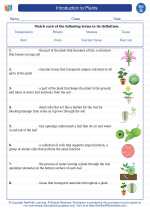Introduction to Plants -> angiosperms
Angiosperms
Angiosperms are a group of flowering plants that produce seeds encased within a fruit. They are the most diverse group of land plants, with over 300,000 species. Angiosperms play a crucial role in the ecosystem as they provide food, oxygen, and habitats for a wide range of organisms.
Characteristics of Angiosperms
- Flowering plants
- Produce seeds enclosed in fruits
- Have specialized reproductive structures, such as flowers
- Have vascular tissues for the transport of water, nutrients, and sugars
- Produce pollen for sexual reproduction
Life Cycle of Angiosperms
Angiosperms undergo alternation of generations, with a dominant sporophyte stage and a reduced gametophyte stage. The life cycle includes the following key stages:
- Seed Production: Angiosperms produce seeds within fruits through the process of fertilization.
- Germination: The seeds germinate to form a seedling, which develops into a mature plant.
- Reproduction: Angiosperms reproduce sexually through the production of flowers, pollination, and seed formation.
Importance of Angiosperms
Angiosperms have significant ecological and economic importance. They are a major food source for humans and animals, providing fruits, vegetables, grains, and nuts. Additionally, they contribute to the oxygen cycle and play a crucial role in maintaining biodiversity and ecosystem stability.
Study Guide
Here are some key points to focus on when studying angiosperms:
- Identify and understand the different parts of a flower, including the petals, sepals, stamens, and pistil.
- Learn about the process of pollination and the different mechanisms by which angiosperms are pollinated.
- Understand the significance of fruits in seed dispersal and the role of fruits in the reproductive cycle of angiosperms.
- Explore the economic importance of angiosperms in agriculture and horticulture.
- Study the life cycle of angiosperms, including the process of fertilization, seed development, and germination.
By understanding the characteristics, life cycle, and importance of angiosperms, you will gain a comprehensive understanding of this diverse and essential group of plants.
[Angiosperms] Related Worksheets and Study Guides:
.◂Science Worksheets and Study Guides Seventh Grade. Introduction to Plants
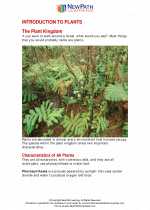
 Worksheet/Answer key
Worksheet/Answer key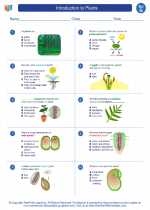
 Worksheet/Answer key
Worksheet/Answer key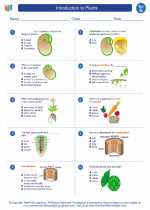
 Worksheet/Answer key
Worksheet/Answer key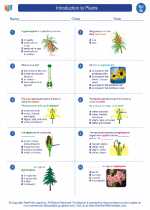
 Worksheet/Answer key
Worksheet/Answer key
 Vocabulary/Answer key
Vocabulary/Answer key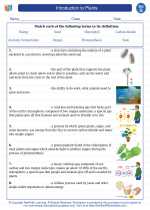
 Vocabulary/Answer key
Vocabulary/Answer key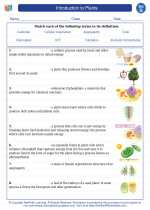
 Vocabulary/Answer key
Vocabulary/Answer key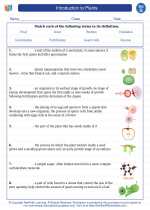
 Vocabulary/Answer key
Vocabulary/Answer key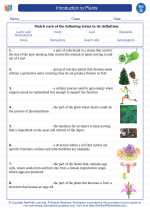
 Vocabulary/Answer key
Vocabulary/Answer key